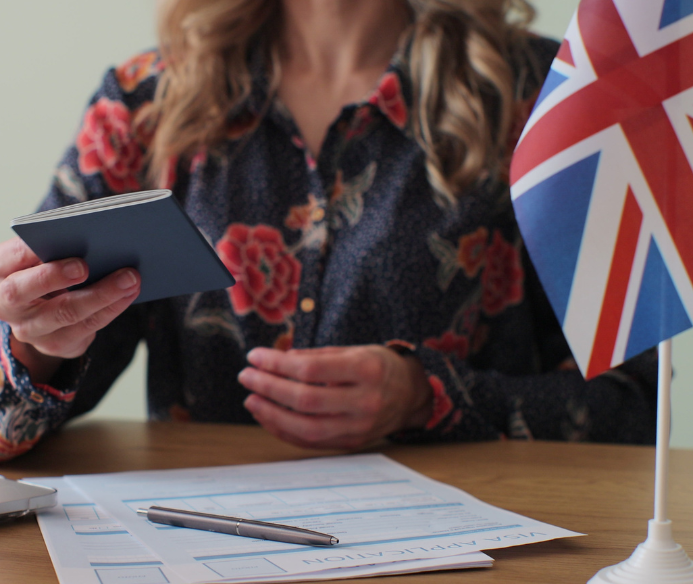British Citizenship by Registration
There are several scenarios in which a person can be registered as a British Citizen, which are briefly discussed below:
If you have another type of British Nationality
If you are a British National who qualifies for British Citizenship, you can apply to register. Circumstances in which you might be eligible include:
- Certain types of British Nationals with no other nationality. You cannot apply this way if you are a citizen or national of another country, or a British Overseas Territories citizen.
- You havelived in the UK for 5 years on a lawful basis.
- You haveworked as a Crown servant (for example in the diplomatic service, overseas civil service or armed forces).
- You have aconnection with Gibraltar, for example you, your parents, or your grandparents were born, registered or naturalised there.
- You have lived inHong Kong and were either a British national on 3 February 1997 or become a British national after 3 February 1997, and you have not held the citizenship or nationality of another country at the time or since.
Born before 1983 to a British mother
Due to historic gender discrimination in British Nationality Law, women could not pass on their citizenship to their children born outside the UK. After the enactment of the British Nationality Act 1981 (which came into force in 1983), women could pass their citizenship onto their children born outside the UK, but this law did not apply retrospectively. To remedy this historical gender discrimination, persons born outside the UK to British mothers before 1 January 1983 now have the option of applying for British Citizenship by Registration. This includes, in some scenarios, when the mother was herself a Citizen of the United Kingdom and Colonies by descent.
Born before 1 July 2006 to a British father who was not married to your mother
Before 1 July 2006, unmarried fathers were not recognised as a parent under the British Nationality Act 1981. Children born before 1 July 2006 to unmarried British fathers can now apply for registration as a British citizen under sections 4G – 4I of the British Nationality Act 1981. They will normally qualify if they would have become British citizens automatically under that Act had their parents been married.
Children under the age of 18
Children cannot acquire British Citizenship by naturalisation until they turn 18 years of age, so parents and guardians have the option of registering them as British Citizens instead. There are several ways in which children can be registered. These rules can be complex so we recommend seeking advice if you are unclear what type of application should be made.
Persons of any age who were born in the UK and did not acquire British Citizenship at birth
The UK abolished the right of “jus soli”, i.e., birth right citizenship when the British Nationality Act 1981 came into force on 1 January 1983. A person’s British nationality is therefore dependant on their parents’ circumstances when they are born. You may be eligible to apply for British Citizenship by registration if you were born in the UK and you did not acquire it automatically.
For more information on our British Citizenship by Registration Services, please get in contact where we would love to discuss how we could help you in your application.
Book Now
Registration as a British Citizen in special circumstances
The new s.4L of the British Nationality Act 1981 was recently introduced by the Nationality and Borders Act 2022. It is a registration route for adults who would have been, or would have been able to become, a British citizen but for one or more of three specific reasons which are set out in statute.
Under section 4L, a person may be registered as a British citizen if:
- they are of full age and capacity, i.e. are 18 years of age or over and are of sound mind
- in the Secretary of State’s opinion, they would have been, or would have been able to become, a British citizen but for at least one of:
-
- historical legislative unfairness – includes, but is not limited to, where the person would have become, or not ceased to be, a British subject, citizen of the United Kingdom and Colonies or British citizen, if an Act of Parliament, or subordinate legislation, had:
-
-
- treated men and women equally
- treated children of unmarried couples in the same way as children of married couples
- treated children of couples where the mother was married to someone other than the natural father in the same way as children of couples where the mother was married to the natural father
-
-
- an act or omission of a public authority – this means a public authority within other than a court or tribunal. This also includes any person whose functions are of a public nature. This definition can include a government department or local authority. It does not, however, include either House of Parliament or a person exercising functions in connection with proceedings in Parliament (for example, MPs and members of the House of Lords).
- exceptional circumstances relating to that person – this is to be used where those exceptional circumstances directly prevented the person from acquiring citizenship: it is not intended to be used to cover cases where a person does not meet the requirements for other routes.
These circumstances are not exhaustive, but are the most common scenarios under which persons will apply for British Citizenship by Registration.
Get in Touch
With years of experience working in UK immigration and British nationality law, our advisors can help you understand the process and take the right steps to obtain your visa. Get in touch today.


 British Citizenship by Registration
British Citizenship by Registration